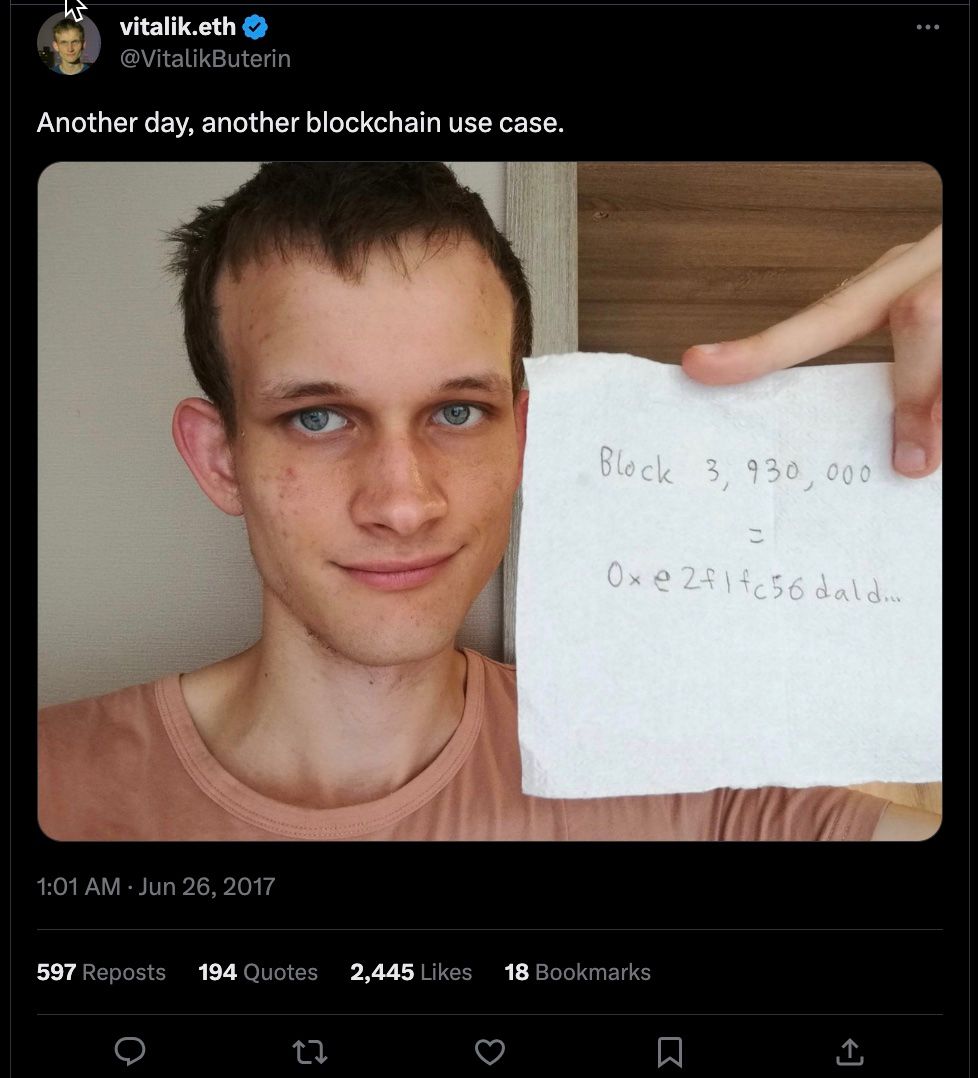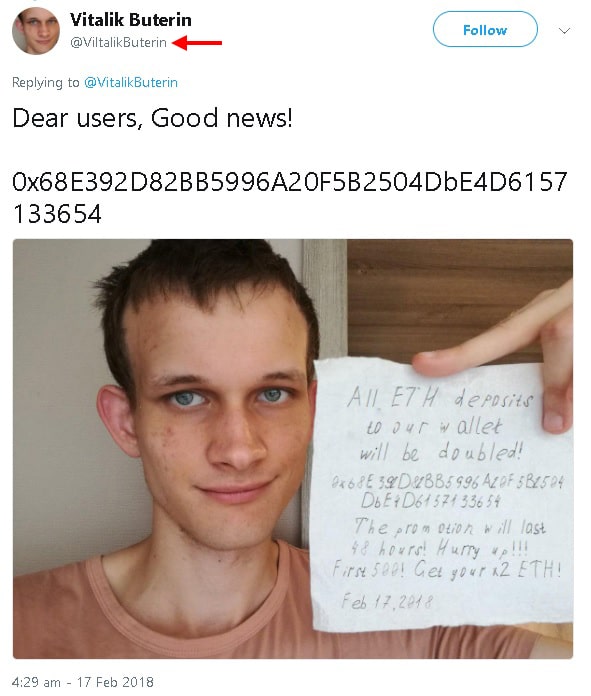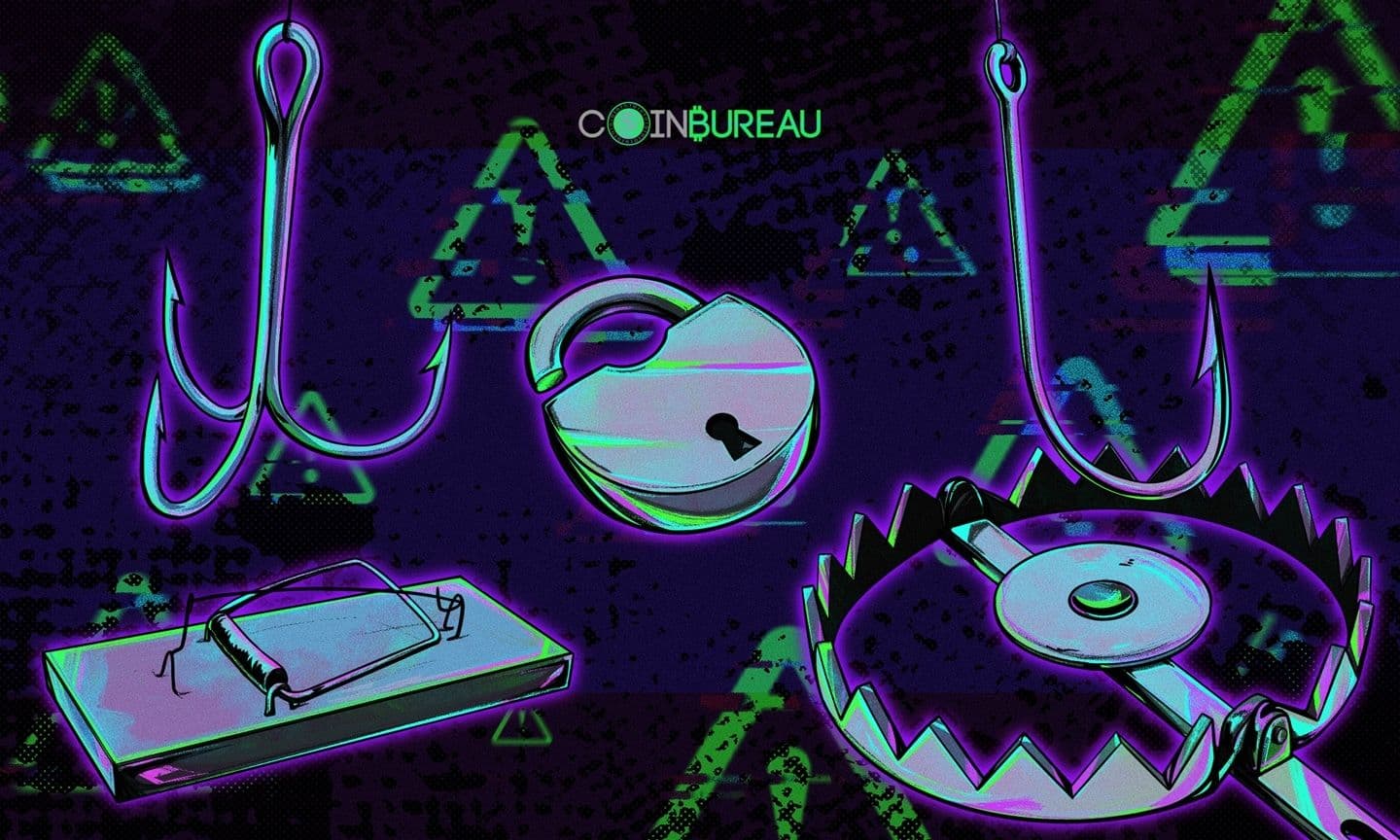There is no doubt that you would have heard of it by now.
Large scale Twitter scams are being perpetrated by bots that try to impersonate influential people.
These operations have been operating for some time and despite the fact that Twitter clams to be doing something about it, they still seem to be proliferating. Even with the warnings from nearly every crypto insider, these scam tweets keep popping up.
Now it seems as if the scammers are getting really creative with their tactics. Not only are they resorting to impersonating the celebrity in question with advanced algorithms, but they are also using photoshop to doctor images of said indivdual.
Let's take a look at their sneaky tactics.
A Familiar Offer
As a bit of background, the scammers in question will usually create an account of a celebrity that looks nearly identical. They will use a near identical twitter handles with a minor change that should appear unnoticeable to the untrained eye.
These tactics are used with great affect in phishing domains where the attacker will only slightly change the domain lettering to make it look legitimate.
The scammer will reply to the celebrity in question with an offer to their "followers". This offer will usually be to donate cryptocurrency to their followers. They offer to send more cryptocurrency back to the first users who send in to them. Below is an example in one of the latest Vitalik Buterin tweets.

Scam Tweet from Fake Account
As you can see, they have taken a handle with the "i" and "l" closely switched around. I am not a guessing man but I assume that people who send their ETH to this address are unlikely to get it back. However, the scammer are also much smarter than one would initially think. They use a number of other tactics to make the offer appear legitimate.
User Replies and Transactions
In order to legitimize the offers, the scammers will use bots to promote them. Not only will they like the tweet in question but they will also reply to the tweet claiming that it worked for them and that they are so grateful.

Bot Replies to Scam Account
There have also been reports that the scammers will replicate the transactions on the blockchain to make it appear as if they are happening as promised. They will send a small amount of ETH from a number of addresses and then send back a large portion to the same address.
The user who is "so grateful" will then post they links to the transactions below the tweet. This may provide added impetus for the users to send the money to the ETH address in question.
Are the scammers making money?
They are indeed. There are some reports that in one night they made over $5,000 from users when they imitated Elon Musk and Donald Trump. They are investing even more time and effort into their scheme which can only mean that it is having an affect.
The crème de la crème of the scams is someone who took to photoshop to alter an image of Vitalik Buterin in a tweet earlier this morning.
Photoshop Pro
In the tweet by Vitalik, a user responded with an image of Vitalik holding up a piece of paper. For those who may not know, this was the image that Vitalik shared last year to prove that he was not killed in a car accident contrary to rumours.
 Image via twitter/VitalikButerin
Image via twitter/VitalikButerinThe image was of an Ethereum block number and a corresponding hash. This was supposed to prove that the internet rumours were false. However, a scammer got hold of that image and got busy with Photoshop. Below is the tweet with the doctored image.

Photoshopped Image with Offer
As you can see, the scammer used a near identical handle but merely changed it to add an extra "l". They also inserted the familiar scam in the picture itself with the text replaced with the offer. A copy of the address was placed above the image.
This must no doubt of taking some time to do and it is unlikely that it could have been automated. Moreover, it seems as if the scam has worked on a few people. At press time there were 4 transactions that were sent to the address of 0.4 ETH each.
Hence, this exact twitter bot has managed to pull in $1,158 from unsuspecting users. This will no doubt cover the expenses of the Photoshop lessons.
Important Lessons to Learn
The whole benefit of cryptocurrencies is that the ecosystem is supposed to be trust-less. Even if the real Vitalik Buterin tweeted offering you free cryptocurrencies, you should not expect it to be a trustworthy offer.
In this case, it is an age old example of something that sounds too good to be true. If someone is offering to send you more money than you are sending them it is likely a scam. It will help you a immensely in the long run to think twice before sending any crypto.
As for our scammer with the photoshop, the fake account is still active. It seems as if Twitter have their hands full dealing with the numerous ingenious tactics of the scammers.
However, you can do your part by calling them out the moment that you see them and alerting Twitter by reporting them.
Featured Image via Fotolia & Twitter



